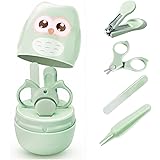Every parent knows that quiet hum of a child deeply engrossed in their own world, where blankets become forts and stuffed animals transform into valiant knights or needy infants. Such scenes are not merely moments of entertainment; they are profound explorations of life through the lens of imagination. In the captivating video above, viewers are treated to a charming display of this very phenomenon as Emma undertakes the significant role of a caregiver, engaging in a delightful session of pretend play babysitting with her baby dolls within a vibrant nursery playset.
The Profound Magic of Pretend Play Babysitting with Baby Dolls
The act of caring for a pretend infant is an activity rich in developmental benefits, extending far beyond simple amusement. When children engage in pretend play babysitting, they are actively rehearsing crucial social and emotional skills. Through Emma’s gentle attempts to soothe a crying doll with a song or feed a hungry one with milk, the foundations of empathy and nurturing are thoughtfully laid. Indeed, such interactions are considered invaluable for a child’s holistic growth.
In this role-playing scenario, children are offered a safe space to process and mirror observed behaviors from their own environments. The baby dolls, as passive recipients of care, facilitate an understanding of another’s needs and emotional states. Consequently, these experiences contribute significantly to a child’s capacity for compassion and understanding, which are essential attributes for healthy social interactions later in life. This form of play truly encapsulates the essence of learning through doing, allowing complex social dynamics to be explored in a manageable context.
Fostering Responsibility and Prioritization Through Play
A key aspect subtly introduced within the video is the concept of responsibility, particularly highlighted when Emma’s dad reminds her about her homework. The integration of everyday tasks, such as academic obligations, into the fabric of imaginative play provides a gentle introduction to prioritization. It is observed that children often internalize these lessons more effectively when they are woven into activities they genuinely enjoy. Therefore, the narrative implicitly teaches that duties often precede leisure.
Furthermore, the ongoing needs of the baby dolls, whether it is for sleep, food, or comfort, underscore a sense of obligation. The child acting as the caregiver must constantly consider the well-being of their charge, thus developing a nascent understanding of accountability. This consistent consideration for others is a cornerstone of responsible behavior, frequently reinforced through repeated play cycles. Such scenarios establish a valuable groundwork for future decision-making processes.
Navigating Challenges: Problem-Solving in Imaginative Play
Life, even in miniature form, presents its share of dilemmas, and pretend play is an excellent arena for tackling these. When a baby doll cries because it cannot sleep, or awakens hungry to find no food available, immediate problem-solving skills are invoked. Emma’s resourceful thinking, from using a spinning toy to lull a doll to sleep to seeking her dad’s help for more toy food, illustrates this beautifully. Challenges within play are perceived not as obstacles, but as opportunities for ingenuity.
This dynamic process encourages children to think critically and adapt to unforeseen circumstances. The journey to the toy store, for instance, transforms into a quest for solutions, involving planning and interaction. Children learn to identify problems, brainstorm potential fixes, and execute those solutions, all within a low-stakes environment. Ultimately, these repeated exercises bolster their confidence in their own abilities to manage real-world situations, acting as a mental rehearsal for daily life’s many small crises.
The Enriching Role of Nursery Playsets and Accessories
The nursery playset itself acts as a miniature stage, complete with props that enrich the narrative and deepen the imaginative experience. Items such as tiny bottles of milk, pacifiers, and even a washing machine, as seen in the video, add layers of realism and possibility to the play. These accessories are not merely decorative; they serve as tangible tools that allow children to mimic the rituals and routines associated with real-life caregiving. Consequently, the depth of engagement is significantly enhanced by the presence of these realistic elements.
A well-appointed playset provides a canvas upon which diverse stories can be painted. The inclusion of various food items, for example, permits exploration of nutrition and mealtime routines, while a washing machine introduces the concept of laundry and cleanliness. These elements empower children to expand their narratives and explore a wider range of social scripts. Thus, playsets function as a catalyst for comprehensive, multi-faceted imaginative play.
Social-Emotional Development Through Role-Playing Games
Role-playing games, like pretend play babysitting, are considered fundamental for a child’s social-emotional development. Through these interactions, children learn to understand and express emotions, navigate social cues, and develop a sense of self and others. By stepping into the shoes of a caregiver, children are compelled to consider the feelings and needs of another, which is a powerful exercise in perspective-taking. Opportunities for expressing care and understanding are consistently provided.
The dialogue between Emma and her baby dolls, simple yet heartfelt, contributes to her developing communication skills. She practices comforting language, asks questions, and responds to perceived needs, albeit from a doll. This constant practice refines verbal and non-verbal communication abilities, which are indispensable for forming relationships. Moreover, the emotional connection forged with the baby dolls can be seen as an early form of bonding, preparing children for more complex interpersonal dynamics.
Encouraging Independence and Creative Solutions
One poignant moment in the video occurs when Emma, needing to focus on her homework, asks the baby doll to play independently. This scenario, while part of a pretend narrative, subtly teaches the value of independent play and self-sufficiency. Children are encouraged to create their own entertainment and find solutions without constant adult supervision. This shift from guided play to self-directed activity is a critical developmental milestone.
When left to their own devices with a collection of toys, children are challenged to harness their inherent creativity. They might invent new games, construct elaborate scenarios, or simply explore the objects in novel ways. Such independent exploration fosters resourcefulness and builds confidence in their ability to entertain themselves and navigate their imaginative worlds. This ability to self-occupy is a valuable skill that serves children well throughout their lives.
The Parental Perspective: Guiding Imaginative Play
Parents play an integral role in fostering and supporting imaginative play, as evidenced by Emma’s dad in the video. His actions, from reminding Emma about homework to facilitating her trip to the toy store for new baby doll food, demonstrate supportive involvement. Parental engagement can significantly enrich a child’s play experiences, providing both structure and opportunities for expansion. When parents show interest in their children’s play, a deeper connection is often formed, reinforcing positive behaviors.
Observing a child engaged in pretend play babysitting offers parents invaluable insights into their child’s cognitive and emotional landscape. It provides a window into their understanding of the world, their concerns, and their aspirations. Furthermore, actively participating in or subtly guiding the play can introduce new vocabulary, concepts, and moral lessons. Therefore, parents are encouraged to view play not merely as recreation, but as a fertile ground for developmental growth.
Building a Foundation for Future Learning
The skills cultivated through extensive pretend play, such as the focused scenario of pretend play babysitting, serve as crucial building blocks for future academic and life success. The cognitive benefits are vast, encompassing improved language acquisition, enhanced narrative skills, and advanced problem-solving capabilities. When Emma sings “Brother John” or “Twinkle, Twinkle, Little Star,” she is unknowingly developing early literacy and rhythm recognition. Consequently, a robust foundation for academic success is indirectly laid.
Moreover, the social and emotional intelligence developed through role-playing games prepares children for navigating the complexities of school and peer relationships. They learn about cooperation, negotiation, and conflict resolution in a playful context. These foundational experiences contribute to a child’s overall resilience and adaptability, equipping them with the tools needed to thrive in an ever-changing world. Ultimately, the simple act of playing with baby dolls is a powerful catalyst for comprehensive child development, nurturing a generation of empathetic and capable individuals.











